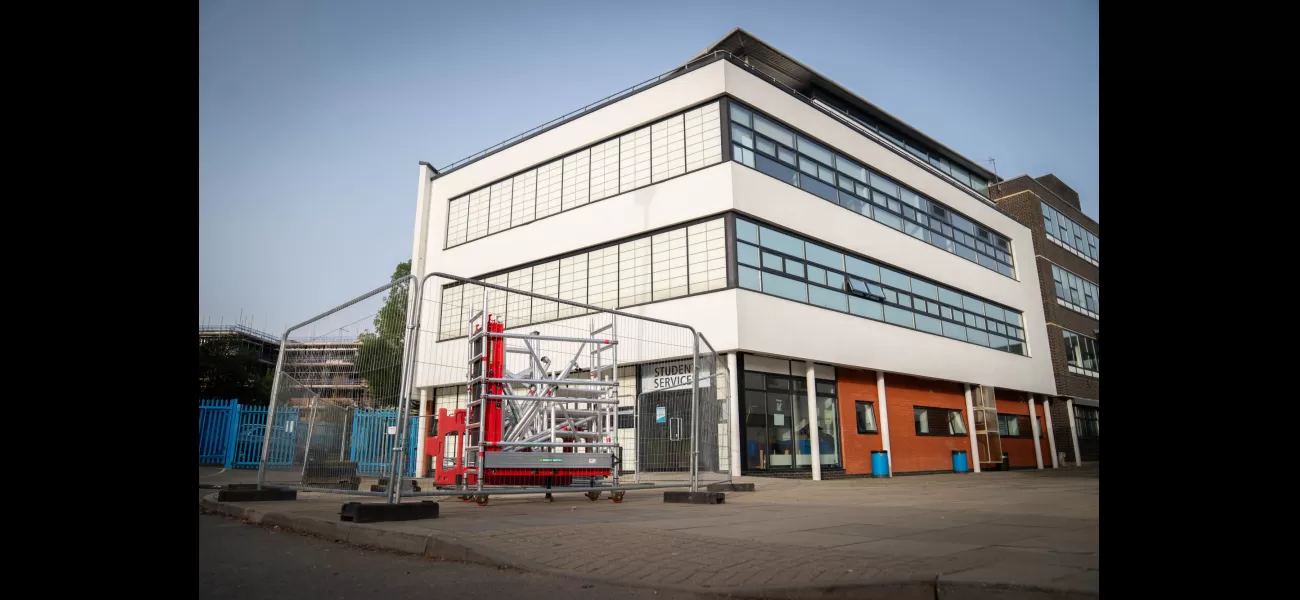Check if your home is RAAC concrete and take necessary steps if it is.
Worries about its use are increasing.
September 7th 2023.

The new school year has got off to a difficult start for parents and students, after more than 100 schools in England were ordered to fully or partially shut buildings due to concerns about RAAC concrete. RAAC, or reinforced autoclaved aerated concrete, is a type of 'bubbly' concrete used in public buildings between the 1950s and 1990s, but it has a shorter lifespan than regular concrete, leading to fears that buildings which used it during this time could be prone to collapse.
With other buildings, such as hospitals and courts, having also been built with RAAC it has now led to fears that it could also have been used in residential homes, in particular council housing. This has caused many homeowners to question whether their own property might be affected by RAAC.
MyBuilder.com, a platform that matches reliable tradespeople to homeowners, has put together a guide for those with concerns about RAAC in their property. If your home was not built between the 1950s and 1990s, you are unlikely to be affected. However, if it was built in that time period then you should take a look to see if you can detect RAAC. The concrete was often installed in the form of large “planks”, but it’s best to appoint a surveyor to ensure it’s identified correctly, and also to rule out the risk of other substances, such as asbestos.
If potential RAAC has been identified in your property you must enlist the services of a structural engineer who can confirm this for you. Depending on how serious the situation is, it might be sensible to consider repairing and maintaining the materials - especially in terms of protecting against water damage and cracking. You should also check if you’re covered by your buildings insurance before proceeding with any remedial action.
In most cases, when RAAC has been identified, it will need to be replaced. Once it’s clear what needs to be done, the engineer can advise which tradespeople you will need to complete the work.
MyBuilder.com’s expert Andy Simms recommends homeowners act quickly if they’re concerned RAAC may have been used in their property: “We hope that in the majority of cases, RAAC won’t be present, but it’s always better to err on the side of caution and get it looked at.”
With other buildings, such as hospitals and courts, having also been built with RAAC it has now led to fears that it could also have been used in residential homes, in particular council housing. This has caused many homeowners to question whether their own property might be affected by RAAC.
MyBuilder.com, a platform that matches reliable tradespeople to homeowners, has put together a guide for those with concerns about RAAC in their property. If your home was not built between the 1950s and 1990s, you are unlikely to be affected. However, if it was built in that time period then you should take a look to see if you can detect RAAC. The concrete was often installed in the form of large “planks”, but it’s best to appoint a surveyor to ensure it’s identified correctly, and also to rule out the risk of other substances, such as asbestos.
If potential RAAC has been identified in your property you must enlist the services of a structural engineer who can confirm this for you. Depending on how serious the situation is, it might be sensible to consider repairing and maintaining the materials - especially in terms of protecting against water damage and cracking. You should also check if you’re covered by your buildings insurance before proceeding with any remedial action.
In most cases, when RAAC has been identified, it will need to be replaced. Once it’s clear what needs to be done, the engineer can advise which tradespeople you will need to complete the work.
MyBuilder.com’s expert Andy Simms recommends homeowners act quickly if they’re concerned RAAC may have been used in their property: “We hope that in the majority of cases, RAAC won’t be present, but it’s always better to err on the side of caution and get it looked at.”
[This article has been trending online recently and has been generated with AI. Your feed is customized.]
[Generative AI is experimental.]
0
0
Submit Comment





